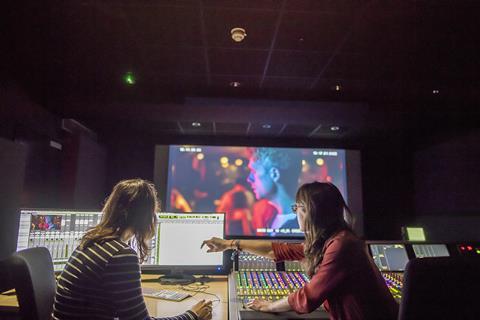
UK creative industries’ union Bectu has written an open letter to over 60 of the UK’s leading post-production facilities outlining concerns over a normalised expectation of “excessive and unreasonable” working hours and failure to pay invoices within the legal time frame.
Stefan Vassalos, Bectu organising official, issued the document on behalf of the union’s post production and facilities branch.
The letter spells out Bectu’s concerns about a lack of clarity over working hours, overtime and time off in lieu for freelancers working in sound.
It highlights how crew agreements with Pact and SVoDs in features and scripted TV were successfully renegotiated. Thus this style of “buy-out” engagement has been ”virtually eliminated” in most of the industry, yet remains a reality for members working for post houses.
This reliance by post facilities on freelancers to accommodate schedule changes can result in unreasonable workloads and adversely affect their physical and mental wellbeing, it states.
It requests that invoices be paid on time, within the 30-day calendar period as set out in legislation.
The letter also highlights the absence of terms and conditions and the “debilitating” impact of last minute and sizeable shifts in schedule or outright cancellations.
Vassalos advised its post sound members to insist on receiving written particulars during the negotiating period and always in advance of beginning the job. They should also use Bectu’s post sound ratecard as a basis for negotiating pay and guidance, he said.
“Bectu and the freelance community fully understand the financial pressures felt by facilities, due to ever-increasing rental rates coupled with the downward pressure from the commissioners and productions to offer more competitive bids. However, the business model of the industry should not rely on the issues outlined being absorbed by individuals who have their own financial pressures, which also includes the not insubstantial cost of maintaining professional studio equipment, libraries and software,” said the union.
Members survey
The organisation undertook a member’s survey to gauge the scale of the problems after issues were flagged at a ‘well-attended’ meeting of the post-sound sub-division at the end of 2022. The survey revealed that the above problems are common nearly across the board and exist on a near-permanent basis where a facility and freelancer relationship exists.
One survey recipient said that they had been “forced” to work six weeks without a day off in order to accommodate a shift in schedule.
“No help or money was ever offered, and it felt clear that I had to do it or risk being blacklisted by the company,” they added.
Another said: “All of us honour the informal pencil system when being booked by facilities but this is in no way reciprocated. We’re frequently dropped at the last minute or mid job if an in house editor becomes available. We’re systematically expendable, a tool that they hire to pick up and put down when it suits.”
Several other survey respondents alleged that some post houses were taking an “enormous” cut of what they were charging the production companies for sound freelancers.
One member said: “I’ve been cc’d into email chains showing facilities taking an enormous cut (£1000 per week) from what they were charging for me. Producer had no idea.”
A version of this story originally appeared on Screens sister site, Broadcast

























No comments yet